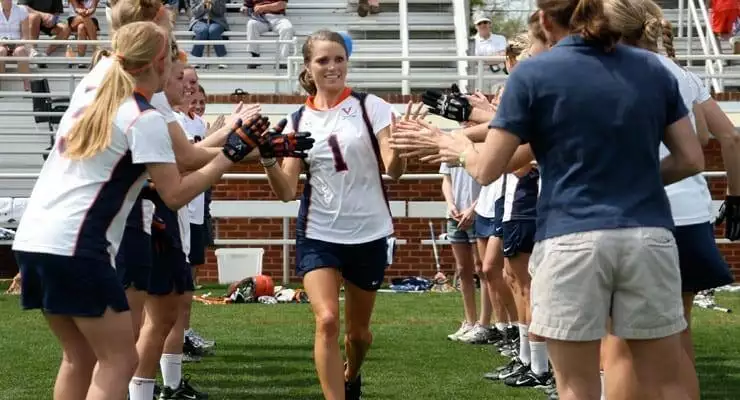Nearly six years ago, Yeardley Love’s family received an unforgettable phone call. The 22-year-old college student and lacrosse player had been murdered by her ex-boyfriend and fellow lacrosse player, George Huguely, three weeks before their graduation from the University of Virginia. Two families were destroyed.
Before Yeardley’s murder, the solution seemed simple: Yeardley had to get safely to graduation, and then she’d be able to leave George Huguely behind for good.
But abusive relationships often follow the same unhealthy path, including control, isolation, and escalating forms of verbal and physical abuse. If victims and bystanders don’t understand the difference between healthy and unhealthy behaviors that can escalate and even become lethal, we often miss the early red flags of abuse and are powerless to help ourselves or others.
One night in the spring of 2010, Huguely broke through Yeardley’s door to get into her apartment. Then he beat her to death in her own bed. Instead of cheering her on at graduation, the Love family buried Yeardley. Two years later, George Huguely received a 23-year sentence for killing her.
Remarkably, despite their shock and grief, Yeardley Love’s family devoted themselves to ending relationship abuse among a key demographic risk group, young people aged 16-24. Women and girls in this age category in the United States are at three times greater risk of experiencing relationship abuse; violent behavior typically begins between the ages of 12 and 18. Each year, over 500 young women like Yeardley are killed by their partners or former partners. Domestic violence experts know the danger signs from decades of research. Yet not many others understand how to spot, and help victims avoid, relationship abuse. Everyone thinks it will never happen to us or our children.
Now The One Love Foundation, founded in honor of Yeardley, as well as other sites such as That’s Not Cool and Love is Respect, and local school education programs, are working to change this. There’s compelling wisdom in this outreach to teenagers: by becoming aware of the subtle, early differences between healthy and abusive relationships while they are still teenagers, people can avoid abuse for the rest of their lives.
These educational resources make it quick and easy for anyone to learn more about how to identify and prevent dating abuse. Parents, grandparents, teachers, coaches, counselors, friends and teens themselves can download the One Love Danger Assessment App, and quickly take an anonymous survey that gives an objective “score” indicating how potentially dangerous any relationship is. Anyone can call the National Dating Abuse Helpline 24 hours a day, 365 days a year, for anonymous, confidential advice at 1.866.331.9474. or 1.866.331.8453 TTY. One Love has an array of PSAs, short videos to post on social media, a facilitated educational workshop called Escalation, and many other resources designed to raise awareness among young men and women, and their families, about the risks and realities of relationship abuse.
The good news is that 95% of young people in our country are not abusing their loved ones. But we’ve all been a silent majority for too long. Like Yeardley Love and her family, parents, educators, and teenagers today are largely uneducated about abuse. The end of February marks the end of Teen Dating Violence Awareness Month. Since abuse happens every day, our efforts to end relationship abuse have to continue every day of the year. Please join One Love today and learn more about how together, we can end teen dating abuse.





